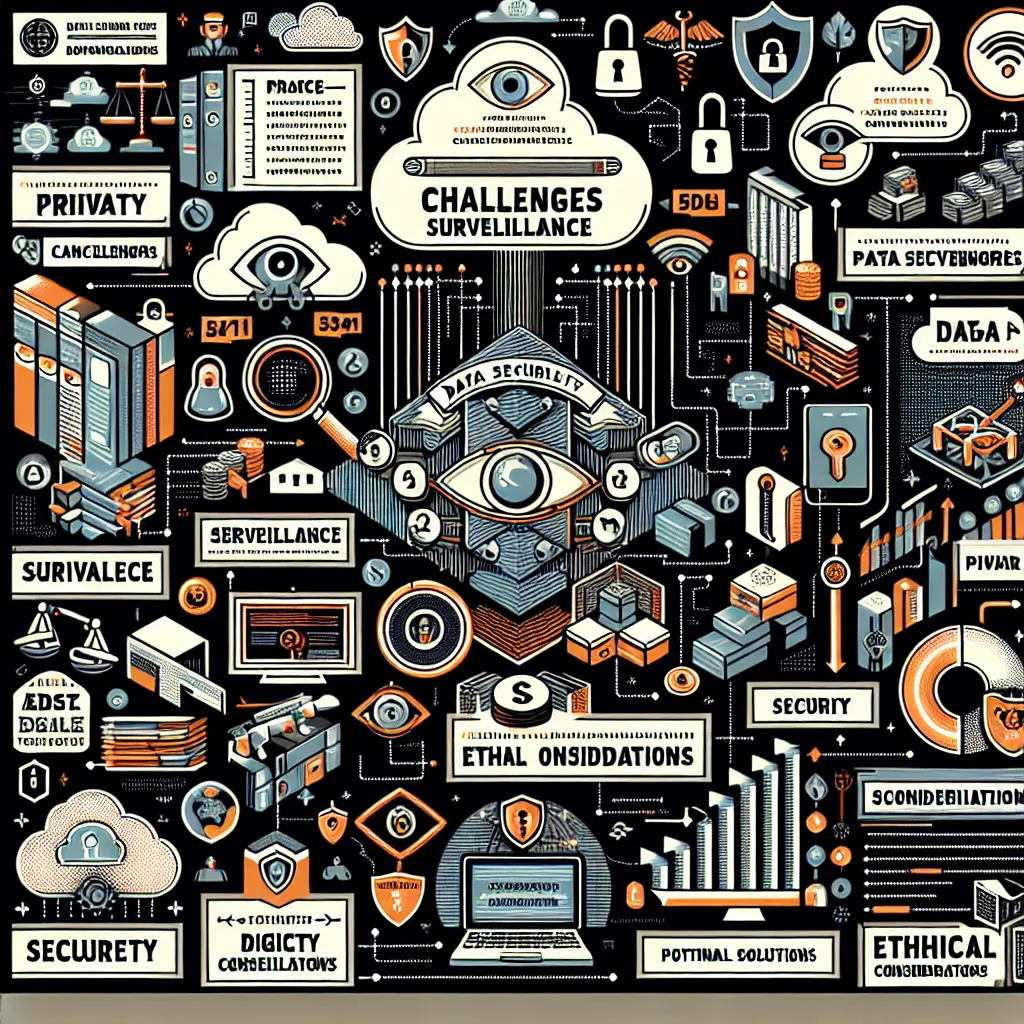Digital surveillance has become an increasingly prominent topic in IELTS Writing Task 2 essays. As technology advances, the ethical implications and societal impacts of digital monitoring continue to spark debate. This article will provide you with a comprehensive guide on how to tackle this subject in your IELTS essay, complete with sample essays and analysis to help you achieve a high band score.
Nội dung bài viết
Analyzing the Topic and Its Relevance
The issue of digital surveillance has appeared in various forms in past IELTS exams and is likely to remain relevant in future tests. Its prevalence stems from its global significance and the ongoing discussions surrounding privacy, security, and technological advancement. Based on current trends, we can expect to see questions related to this topic with increasing frequency.
Let’s examine a typical IELTS Writing Task 2 question on this subject:
Some people believe that the widespread use of digital surveillance technologies by governments and corporations is necessary for public safety and efficient service delivery. Others argue that it poses a serious threat to personal privacy and individual freedom. Discuss both views and give your own opinion.
Analyzing the Question
This question presents a balanced argument, asking you to discuss both sides of the digital surveillance debate. The key points to address are:
- The benefits of digital surveillance for public safety and service efficiency
- The potential threats to personal privacy and individual freedom
- Your own opinion on the balance between these competing concerns
Remember to provide specific examples and well-reasoned arguments to support your points.
Sample Essays
Band 8-9 Essay
In the digital age, the proliferation of surveillance technologies has sparked a heated debate about the balance between security and privacy. While some argue that these tools are essential for public safety and improved services, others contend that they pose a significant threat to personal freedoms. In my view, while digital surveillance can offer some benefits, its widespread use requires careful regulation to protect individual rights.
Proponents of digital surveillance argue that it plays a crucial role in maintaining public safety and enhancing service delivery. For instance, CCTV cameras in public spaces can deter criminal activity and aid in solving crimes when they do occur. Similarly, data collection by corporations can lead to more personalized and efficient services, such as targeted advertising or improved urban planning based on population movement patterns. These applications of surveillance technology can contribute to a safer and more convenient society.
However, critics rightly point out the potential dangers of unchecked digital surveillance. The constant monitoring of individuals’ online and offline activities can lead to a chilling effect on free speech and personal expression. People may self-censor or alter their behavior if they feel they are always being watched. Moreover, there is a risk of data breaches or misuse of personal information, which could have severe consequences for individuals’ privacy and security. The Cambridge Analytica scandal, where personal data was harvested without consent for political purposes, serves as a stark reminder of these risks.
In my opinion, while digital surveillance can offer some societal benefits, it is crucial to implement strict regulations and oversight mechanisms to prevent abuse. Governments and corporations should be transparent about their data collection practices and be held accountable for any misuse. Additionally, individuals should have the right to know what information is being collected about them and how it is being used. Legislation like the European Union’s General Data Protection Regulation (GDPR) provides a good model for balancing the benefits of data collection with the protection of individual privacy rights.
In conclusion, the issue of digital surveillance presents complex challenges that require careful consideration. While it can contribute to public safety and service efficiency, the potential threats to personal privacy and freedom cannot be ignored. A balanced approach, with robust legal frameworks and public awareness, is essential to harness the benefits of surveillance technologies while safeguarding individual rights in our increasingly digital world.
(Word count: 392)
Band 6-7 Essay
The use of digital surveillance technologies by governments and companies has become a controversial topic in recent years. Some people think it is necessary for public safety and better services, while others believe it is a big threat to personal privacy and freedom. In this essay, I will discuss both views and give my opinion.
On one hand, digital surveillance can help keep people safe and improve services. For example, cameras in public places can help police catch criminals or prevent crimes from happening. Also, when companies collect data about customers, they can offer better and more personalized services. This can make life more convenient for many people.
On the other hand, there are serious concerns about privacy and freedom. When people know they are being watched all the time, they might change their behavior or be afraid to express their opinions freely. There is also a risk that personal information could be stolen or misused. This could lead to problems like identity theft or discrimination.
In my opinion, while digital surveillance can have some benefits, it is important to be careful about how it is used. I think there should be strict rules about what kind of information can be collected and how it can be used. People should also have the right to know what information is being collected about them and be able to control it to some extent.
To conclude, digital surveillance is a complex issue with both advantages and disadvantages. While it can help with safety and services, it also poses risks to privacy and freedom. I believe that finding a balance between these concerns is crucial for our society.
(Word count: 282)
Key Writing Tips
-
Structure: Ensure your essay has a clear introduction, body paragraphs discussing both viewpoints, and a conclusion that includes your opinion.
-
Vocabulary: Use a range of topic-specific vocabulary. For Band 8-9, incorporate more sophisticated terms and phrases. For Band 6-7, focus on using relevant vocabulary accurately.
-
Grammar: For higher bands, use a variety of complex structures. For Band 6-7, aim for a mix of simple and complex sentences with general accuracy.
-
Cohesion: Use linking words and phrases to connect ideas smoothly. Higher band essays should demonstrate more sophisticated cohesion devices.
-
Examples: Provide specific, relevant examples to support your arguments. Band 8-9 essays should include more detailed and nuanced examples.
Essential Vocabulary
-
Surveillance (noun) /səˈveɪ.ləns/: The careful watching of a person or place, especially by an organization.
-
Privacy (noun) /ˈprɪv.ə.si/: The state of being free from public attention or interference.
-
Ethical (adjective) /ˈeθ.ɪ.kəl/: Relating to beliefs about what is morally right and wrong.
-
Transparency (noun) /trænsˈpær.ən.si/: The quality of being open and honest, without secrets.
-
Data breach (noun) /ˈdeɪ.tə briːtʃ/: An incident where information is stolen or taken from a system without the knowledge or authorization of the system’s owner.
-
Chilling effect (noun) /ˈtʃɪl.ɪŋ ɪˌfekt/: A discouraging or deterring effect, especially one resulting from restrictive conditions.
-
Accountability (noun) /əˌkaʊn.təˈbɪl.ə.ti/: The fact of being responsible for what you do and able to give a satisfactory reason for it.
-
Oversight (noun) /ˈəʊ.və.saɪt/: The job of checking that a process or system is working well.
 Digital surveillance challenges
Digital surveillance challenges
Conclusion
Addressing the challenges of digital surveillance in an IELTS Writing Task 2 essay requires a balanced approach, considering both the benefits and drawbacks of these technologies. By following the structure and tips provided, and using relevant vocabulary and examples, you can craft a well-argued essay that demonstrates your understanding of this complex issue.
As you prepare for your IELTS exam, consider practicing with similar topics related to technology and privacy. Some potential questions might include:
- The impact of social media on personal privacy
- The role of artificial intelligence in surveillance and security
- Balancing national security with individual privacy rights
We encourage you to practice writing essays on these topics and share them in the comments section below. This active engagement will help you refine your writing skills and gain valuable feedback from others preparing for the IELTS exam.
Remember, mastering IELTS Writing Task 2 is about more than just understanding the topic – it’s about effectively communicating your ideas in a clear, coherent, and well-structured manner. Keep practicing, and you’ll be well on your way to achieving your desired band score!


